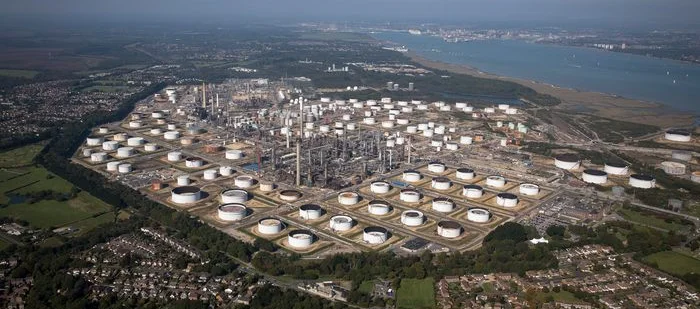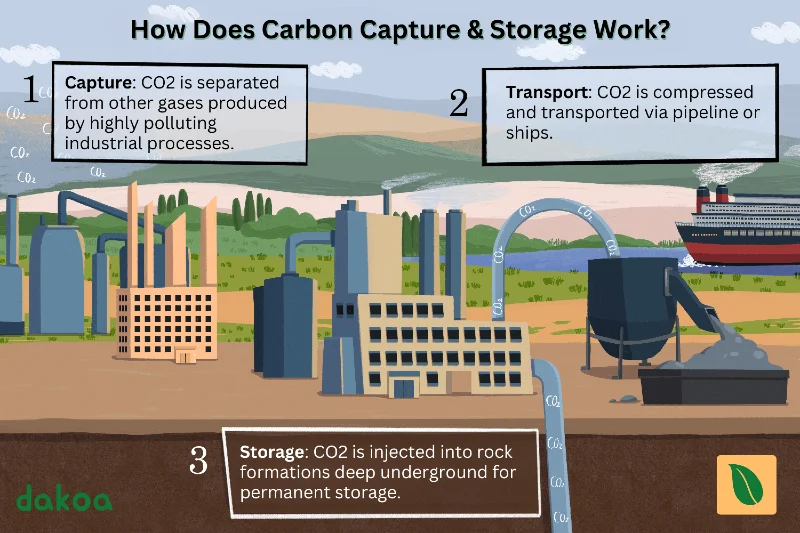Motorists are frequently targeted by campaigns promising more environmentally friendly driving experiences. A prime example of such marketing efforts is Esso’s recent initiative promoting “thoughtful driving.” Among the most ambitious aspects of this campaign is a plan that could drastically reduce the environmental impact of car emissions by capturing carbon dioxide at ExxonMobil’s vast oil refinery in Fawley, Hampshire, and sequestering it beneath the English Channel.
This strategy, touted by ExxonMobil, the parent company of Esso, suggests that drivers could “fill up with less impact” on the environment and contribute significantly to the UK’s net-zero emissions goal.
Esso's Thoughtful Driving Commercial
Accusations of Greenwashing
However, a recent investigation by openDemocracy casts doubt on the feasibility of this carbon capture project, revealing that it might never progress beyond the proposal stage. The project lacks both a necessary license and governmental backing, and crucially, ExxonMobil has not allocated any funding for its development.
According to Paul Greenwood, Exxon’s UK boss, reaching a 2030 target for the first construction phase would require near-miraculous circumstances, remarking it could only be possible “if you wave a magic wand.”
Doug Parr, chief scientist at Greenpeace UK, criticizes the oil industry’s promotion of carbon capture and storage (CCS) as a miraculous solution to climate change, noting that it hasn’t come close to making carbon emissions reduction affordable or widespread in the past two decades. He labels the Fawley scheme as a clear example of greenwashing.
The Slow Pace of Carbon Capture Technology
CCS technology, which captures CO2 emissions at their source and either uses them to create products or stores them underground, has advanced sluggishly. By the end of the previous year, there were only 41 operating CCS facilities worldwide, capturing just 0.1% of global CO2 emissions annually. Despite the selection of four industrial clusters in the UK for government funding, none have reached the final investment decision stage.
ExxonMobil’s specific plans at Fawley include constructing a new blue hydrogen plant purported to capture 2.7 million tonnes of CO2 annually. According to a Solent Cluster report financed by ExxonMobil, this operation could commence by 2030, with the captured CO2 piped beneath the sea near the Isle of Wight.
However, these plans hinge on securing a carbon storage license and government support, neither of which has been achieved. Last year, the Solent Cluster’s application for government funding was unsuccessful.

Corporate Commitment Questioned
At a recent event in the House of Commons, attended by energy minister Martin Callanan, Greenwood acknowledged the uncertainty of meeting the 2030 goal. His comments underscored the project’s dependency on significant yet unsecured investment. Meanwhile, ExxonMobil has committed £800 million (\$1 billion) to boost diesel production at Fawley, which is already the UK’s largest refinery.
More To Discover
- Hottest Year in 125,000 Years, Yet #ClimateScam Trends: Why Climate Change Denial Persists Despite Overwhelming Evidence
- Siemens Energy’s Wind Turbine Woes Reflect Challenges in Germany’s Energy Shift
- Green Energy Breakthrough: South Korean Researchers Pioneer Algae-Based Hydrogen Production
- 8 Unexpected Ways to Decarbonize the Shipping Industry Immediately
Dustin Benton, policy director at the Green Alliance thinktank, emphasizes that while CCS technology is crucial for achieving net-zero, it should not be used to justify continued oil and gas extraction or increased production of fossil fuels.
A Solent Cluster spokesperson has claimed that the Fawley project and other CCS initiatives could help preserve up to 70,000 jobs in the region. An ExxonMobil spokesperson defended the company’s broader environmental strategy, stating a commitment to the energy transition, albeit acknowledging that this process is influenced by various factors including technological advancements, policy frameworks, economic conditions, and public support. They expressed optimism that continued engagement with the government would eventually garner support for the Solent Cluster’s ambitions.




















